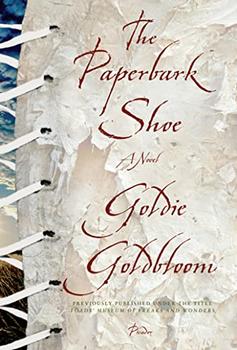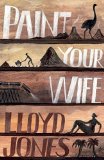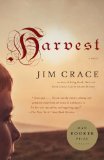Summary | Excerpt | Reading Guide | Reviews | Beyond the book | Read-Alikes | Genres & Themes | Author Bio

A Novel
by Goldie GoldbloomSet in 1940s Australia, The Paperbark Shoe is a remarkable novel about the far-reaching repercussions of war, the subtle violence of displacement, and what it means to live as a captive - in enemy country, and in one's own skin.
From 1941 to 1947, eighteen thousand Italian prisoners of war were sent to Australia. The Italian surrender that followed the downfall of Mussolini had created a novel circumstance: prisoners who theoretically were no longer enemies. Many of these exiles were sent to work on isolated farms, unguarded.
The Paperbark Shoe is the unforgettable story of Gin Boyle - an albino, a classically trained pianist, and a woman with a painful past. Disavowed by her wealthy stepfather, her unlikely savior is the farmer Mr. Toad - a little man with a taste for women's corsets. Together with their two children, they weather the hardship of rural life and the mockery of their neighbors. But with the arrival of two Italian prisoners of war, their lives are turned upside down. Thousands of miles from home, Antonio and John find themselves on Mr. and Mrs. Toad's farm, exiles in the company of exiles. The Paperbark Shoe is a remarkable novel about the far-reaching repercussions of war, the subtle violence of displacement, and what it means to live as a captive - in enemy country, and in one's own skin.
Winner of the 2008 AWP Award for the Novel (The Association of Writers and Writing Programs)
First published in hardcover as Toads' Museum Of Freaks And Wonders
The Paperbark Shoe is a miracle of a book - so perfect, it's astonishing that it is Goldie Goldbloom's first. Along with the characters, we experience sweat and toil, success and defeat on unforgiving land, and we mull over the pain of the injustices we all wreak on each other. The relief we may feel because we aren't physically like Gin and Toad is made moot when we remember that what binds us all is a shared human nature...continued
Full Review
(921 words)
This review is available to non-members for a limited time. For full access,
become a member today.
(Reviewed by Lisa Guidarini).
 Australian author Goldie Goldbloom discusses her debut novel, The Paperbark Shoe, with Lisa Guidarini. The following are selected excerpts from the full interview.
Australian author Goldie Goldbloom discusses her debut novel, The Paperbark Shoe, with Lisa Guidarini. The following are selected excerpts from the full interview.
You chose to set the book in your native Australia. Do you believe it would have been as effective if the setting had been, say, the 1930s Dust Bowl in the United States, or was the Australian setting essential?
I'm always excited when someone asks me a question that I haven't been asked before, especially one that makes me think deeply. I don't know enough about rural America to write well about it. The red dirt of Australia is still underneath my fingernails. Themes of isolation and xenophobia and heartbreak and loss are universal, but in a squeaky little corner of...
This "beyond the book" feature is available to non-members for a limited time. Join today for full access.

If you liked The Paperbark Shoe, try these:

by Lloyd Jones
Published 2016
Paint Your Wife is a colorful, sensual novel, brimming with rich stories and even richer characters.

by Jim Crace
Published 2013
In effortless, expertly crafted prose, Jim Crace details the unraveling of bucolic life in the face of economic progress. His tale is timeless and unsettling, evoking a richly textured world you will remember long after you finish reading.
If there is anything more dangerous to the life of the mind than having no independent commitment to ideas...
Click Here to find out who said this, as well as discovering other famous literary quotes!